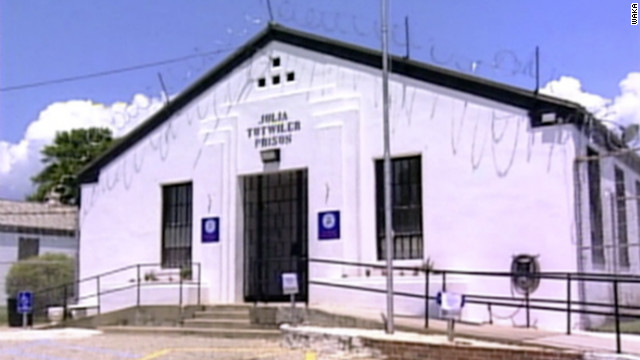Why is the state of Alabama constructing three new prisons?
September 16, 2020
Amid a pandemic and an international social justice uprising, one would think that the Alabama Legislature would focus on passing legislation to better deal with the topic at hand. Unfortunately, that is not our reality. Instead of dealing with the issues that are both plaguing the country-at-large and affecting Alabama the most, Gov. Kay Ivey is prioritizing her plan to construct three mega prisons that would begin construction next year. Despite the United States Department of Justice placing Alabama on notice for the second time earlier this year for unconstitutional prison conditions, it is clear that Ivey has no interest in reform.
Ivey describes her plans as a step towards overhauling Alabama’s understaffed and violence-plagued prisons, and these plans include state leasing three facilities owned by private corporations. The Alabama Department of Corrections (ADOC) estimates that facilities will feature approximately 37 percent more programming space per inmate with plans of increasing educational training, recreational/exercise space, and four times more celled areas. Moreover, the ADOC is “exploring” options for establishing new transitional centers and expanding the contracted services at facilities where they are currently provided.
On paper, this sounds like an idea with great potential. Estimating thousands of construction jobs and promising to shift to a rehabilitative model, the average person would assume that Ivey and the Alabama legislature created this plan with the inmates’ best interest, the staff of these prisons, and the taxpayers in mind. However, knowing the history of Ivey and the ADOC and the harmful effects of private prisons, I am not convinced. If anything, I am disgusted with this plan. I know that both the state and the private companies have no interest in creating the necessary prison reform for our country to move forward, such as implementing community corrections.
As noted by the current movement to defund the police, the United States criminal justice system is a one-stop-shop to deal with society’s issues. From mental illness to addiction to homelessness, the prison system has become a warehouse for people who are often victims of circumstance. Stripped from their communities and placed in a system that prioritizes punishment over rehabilitation, many people who find themselves in the criminal justice system would be better off in facilities meant to treat their specific needs; specifically, diversion programs like drug court, mental health court, or community corrections. Jails and prisons rarely have the resources or the staff to care for people there adequately, and receiving outside care is virtually impossible. For states like Alabama, the deadly combination of being overcrowded and underfunded, along with the government’s lack of initiative, has allowed jails and prisons in Alabama to crumble.
Simply put, the current way we deal with corrections in Alabama is not working. It has not worked for years. So, understanding that, why has not the Alabama Legislature taken the initiative to look into alternatives such as community corrections?
In its simplest definition, community corrections are programs administered by agencies and courts that supervise offenders within their communities instead of jails and prisons. By allowing these “offenders” to receive help within their communities, these programs create conducive environments for rehabilitation. Focusing on holding offenders accountable and offering services to help combat mental illness and homelessness, these programs have the potential to achieve the goals initially set for prisons: one of those goals being rehabilitation.
From the state perspective, as seen in the mega-prison construction plan, cost efficiency seems to be of the utmost importance when dealing with corrections. Even though community corrections are more cost-efficient and have a history of maximizing their budgets to include the service necessary for offenders, lawmakers are convinced that bigger prisons are the best form of reformation. Translation, instead of prioritizing people and creating plans that address the current prison crisis, Alabama lawmakers have prioritized economic prosperity for themselves.
Private prisons are nothing more than an extension of mass incarceration. As stated in the article titled “Do privately-owned prisons increase incarceration rates?” studies show that private prisons equate to more inmates and longer sentences, which in Alabama, the state with the fifth largest prison population in the country, do not need. Increasing the size of facilities and privatizing them, Alabama allows these companies to profit from the people placed in them, which continues the already corrupt cycle this plan was supposed to address. In Alabama specifically, with our soiled racial history and all of the information available about the role of racism in the criminal justice system at large, one would think they would know better, and in return, do better.
Community corrections have more than enough data to support that they are the better alternative to building more prisons. Their focus on community reintegration and the positive impacts on offenders rehabilitating themselves in environments familiar to them, along with their dedication to addressing victims’ needs to restorative justice, community corrections is the better option. But, in Alabama, it is clear that none of that matters. They have a dedication to something else, upholding the legacy of institutional racism through mass incarceration.
Why am I even surprised?







